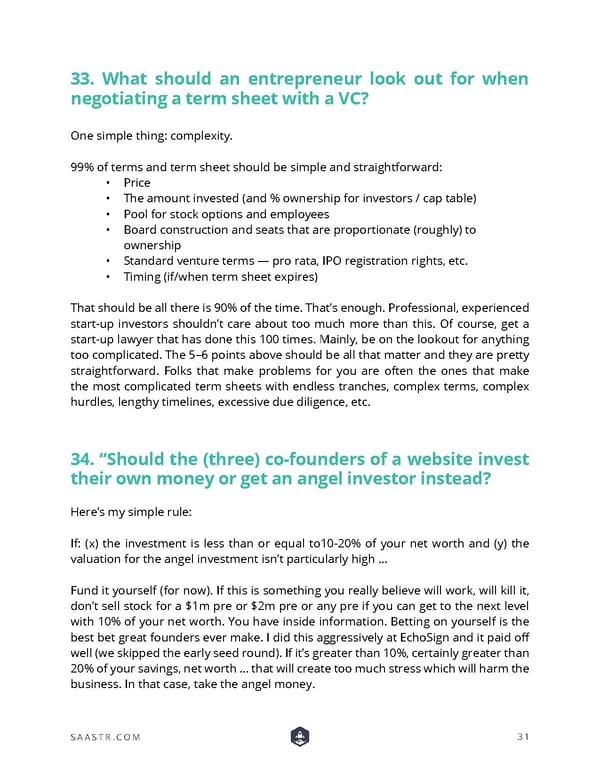33. What should an entrepreneur look out for when negotiating a term sheet with a VC? One simple thing: complexity. 99% of terms and term sheet should be simple and straightforward: • Price • The amount invested (and % ownership for investors / cap table) • Pool for stock options and employees • Board construction and seats that are proportionate (roughly) to ownership • Standard venture terms — pro rata, IPO registration rights, etc. • Timing (if/when term sheet expires) That should be all there is 90% of the time. That’s enough. Professional, experienced start-up investors shouldn’t care about too much more than this. Of course, get a start-up lawyer that has done this 100 times. Mainly, be on the lookout for anything too complicated. The 5–6 points above should be all that matter and they are pretty straightforward. Folks that make problems for you are often the ones that make the most complicated term sheets with endless tranches, complex terms, complex hurdles, lengthy timelines, excessive due diligence, etc. 34. “Should the (three) co-founders of a website invest their own money or get an angel investor instead? Here’s my simple rule: If: (x) the investment is less than or equal to10-20% of your net worth and (y) the valuation for the angel investment isn’t particularly high ... Fund it yourself (for now). If this is something you really believe will work, will kill it, don’t sell stock for a $1m pre or $2m pre or any pre if you can get to the next level with 10% of your net worth. You have inside information. Betting on yourself is the best bet great founders ever make. I did this aggressively at EchoSign and it paid off well (we skipped the early seed round). If it’s greater than 10%, certainly greater than 20% of your savings, net worth ... that will create too much stress which will harm the business. In that case, take the angel money. SAASTR.COM 31
 The Ultimate Guide For Scaling Sales & Raising Capital Page 34 Page 36
The Ultimate Guide For Scaling Sales & Raising Capital Page 34 Page 36